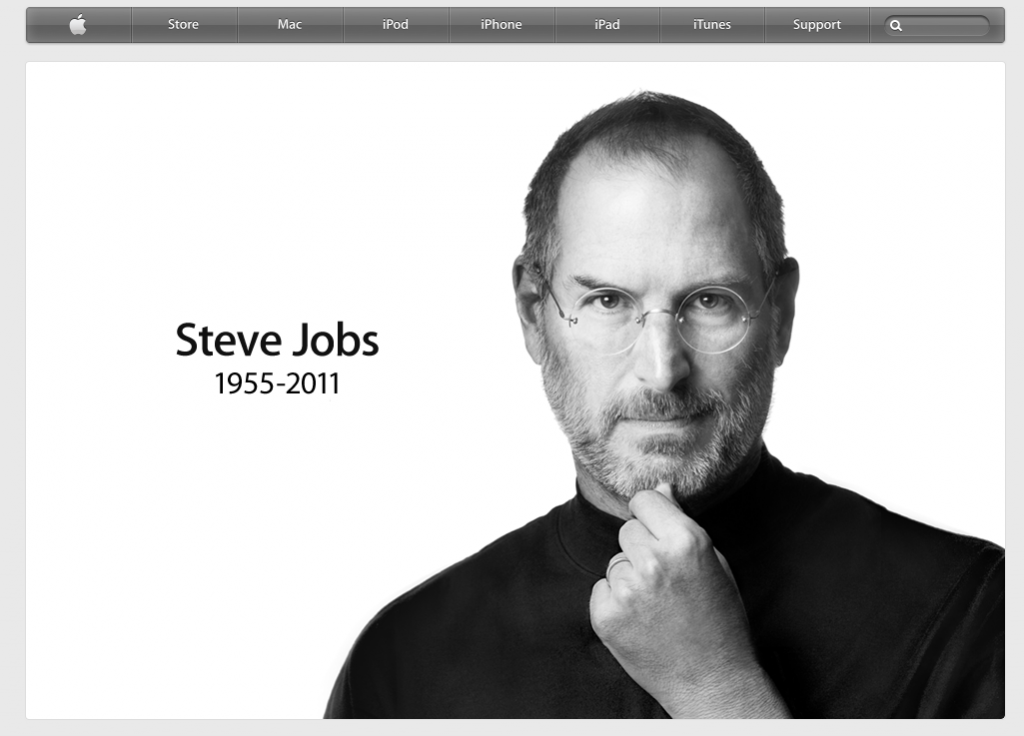Steve Jobs was such a monolithic innovator in the field of computing and technology that the ripples of his work didn’t just touch the film industry, they fundamentally changed it on every level.
The iPod changed the way we thought about the concept of media: individualizing it, recommoditizing it, and democratizing it. The iPhone put high-resolution screens in millions of pockets, making the films, shows, and music we love more available than ever before. And finally the dozens of computing innovations over the years empowered the film production and post-production worlds to do better work, and to do it faster. iPad’s helped force studios to understand that they too would have to face the fracturing distribution model of their product, while Final Cut Pro empowered digital motion picture editing to become the standard. From David Fincher cutting his latest masterpiece with Apple software on Apple hardware to you watching the trailer for it in HD on an Apple site to you enjoying the film for this fifth time on an Apple device while you ride the train… the innovations conceived, refined, and made hugely popular under his watch forever changed how movies are made, and how movies are enjoyed.
But that’s not all. More than just upending how traditional motion pictures would be captured and experienced, Jobs was key in the formation of a studio that would produce films in an entirely new medium. Such a successful rethinking of the manner in which a story could be told hadn’t been pulled off in decades, and yet Pixar wowed the world with a film unlike anything it had ever seen. Most importantly, Toy Story was good. While the technical innovation would of course become commoditized and filter out to competitors, in the typical fashion of Jobsian endeavors, the true top-to-bottom consistence in quality would remain a uniquely Pixar trait. Surely there have been missteps… Cars can stand in for the first Apple TV in this case… but even the most on-course ships sometimes buck with the waves. And for each triumph and each mistake, when his hand weren’t on them directly it was Jobs’ vision and drive that empowered the Ives, Lasseters, and thousands of other engineers and animators to do their great work.
Whether you think the iPhone 4s is a mistake or Monsters University may not be the best idea, I think we can all agree that Jobs help build institutions that have proven they will remain on the cutting edge and on the A-list for many many years to come after his passing. For that we credit him, mourn the loss, and look happily to a future made a little brighter because of him. Maybe the real revolution will be tweeted from an iPhone, or maybe it wont, but it’s certain that even when times get rougher, people will find their lives a little bit easier on the nitty-gritty level because technology once thought unthinkable was brought to the hands and pockets of the masses. Barring that, perhaps they’ll curl up after a long day at both of their jobs with a well-crafted Pixar film and feel a little better. In either case, we can thank Jobs for making those things possible.
Businessmen, CEOs, and gadget-lovers alike will all miss and salute Jobs, the great modern American tech innovator. But make no mistake: he will always be remembered just as fondly by those who love motion pictures.
—
Steve Jobs passed away on October 5th, 2011 after a long battle with pancreatic cancer, and after stepping down as Apple CEO the previous August. He leaves behind his wife Laurene Powell Jobs, and four grown children.
—
Share your thoughts in the comments below, or join the discussion in the Message Board thread right here. You can respond to me directly on twitter @rennbrown.
